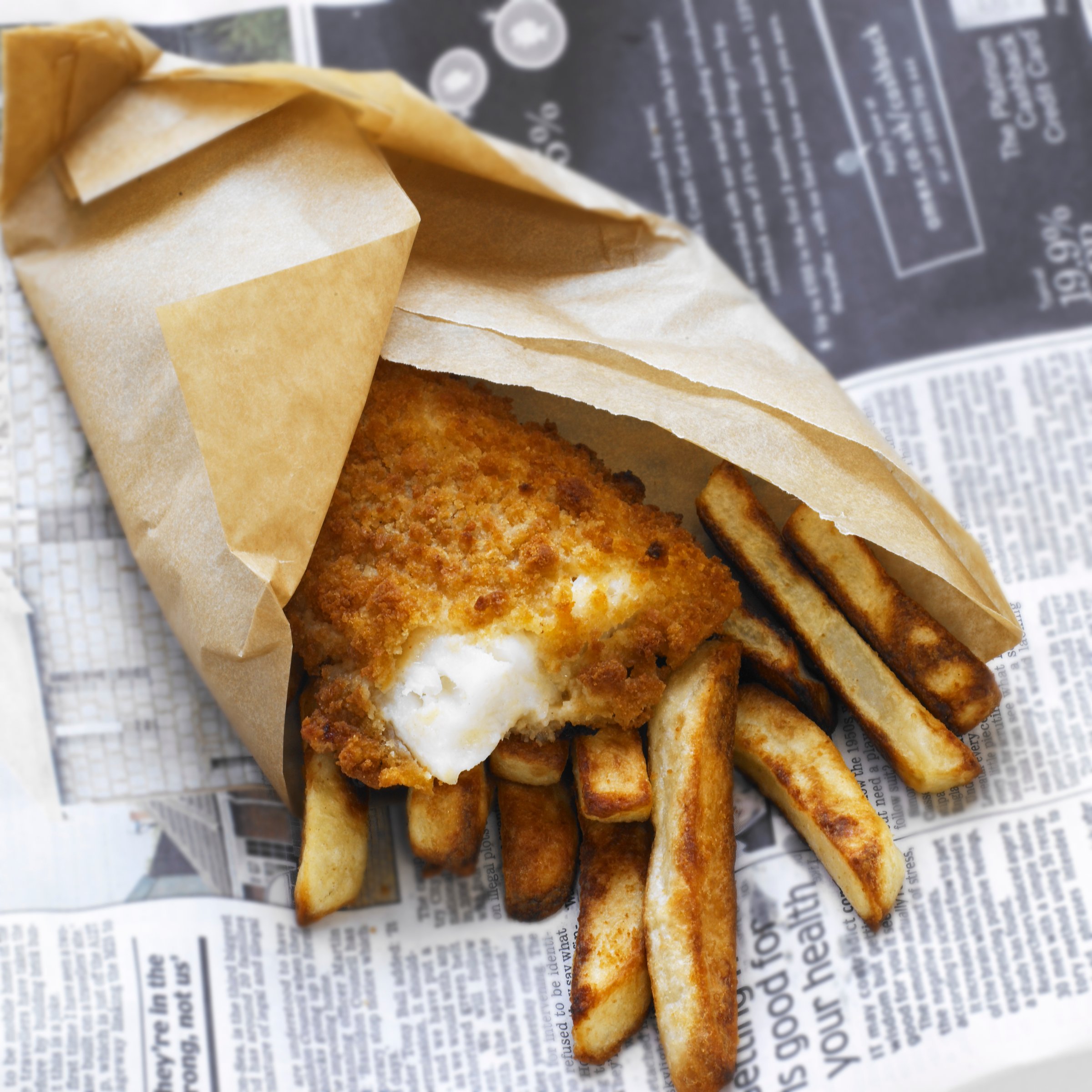
Traditional British fish and chips could soon be off the menu in the U.K., as new research suggests squid, sardines and anchovies have flocked to the warmer waters around the British isles and are poised to replace cod as the classic meal’s seafood of choice.
The Centre for Environment, Fisheries and Aquaculture Science (Cefas), which monitors wildlife in Britain’s North Sea, has found that there has been an increase in warm water species in the area compared to previous years, replacing cold water fish such as cod. Dr John Pinnegar, who led the research and will be presenting his findings at the British Ecological Society’s Annual Meeting this week, said “Our models for 2025 and beyond suggest that seawater temperature may continue to rise in the future. As a result, U.K. waters will become more hospitable for some species and less suitable for others, with the overall result that most commercial species will move northwards.”
The North Sea has seen a dramatic increase in the numbers of squid over the past three decades, according to the new data. Cefas found squid at 60% of its 76 survey stations in the region in 2014, compared with only 20% in 1984. On the other hand, cod populations have been slow to replenish after overfishing, with scientists fearing that the North Sea’s increasingly warmer waters have affected the species’ reproduction rates. Cod is an endangered species according to WWF, and is the most common fish used in fish and chip recipes, along with haddock.
These changing patterns could mean that fish and chip fans could potentially enjoy seafood offerings more commonly found in the Mediterranean at their local “chippy.” “U.K. consumers enjoy eating quite a limited range of seafood, but in the long term we will need to adapt our diets,” Pinnegar said in a statement published by New Food Magazine. “In 2025 and beyond, we may need to replace cod and other old favourites with warm-water species such as squid, mackerel, sardine and red mullet.”
Andrew Crook, vice president of the National Federation of Fish Friers, told TIME that fears about traditional fish and chips are a little overcooked. Many businesses have been working to improve the sustainability of their fish supply chain, he says, and have already adapted their menus to reflect the changing marine populations. “Scottish fishers are catching more langoustines for example, and shops are starting to offer more variety.”
Moreover, the 17-year industry veteran doesn’t see the taste for the iconic British supper disappearing any time soon. “With fish and chips, people really are ingrained in what they want,” Crook says. “We don’t think there’s a need to replace cod and haddock but it’s good to offer alternatives for people to try. Our industry is trying to differentiate itself from fast food, as there’s more skill involved. People will try different species, but they’ll always revert back to fish and chips – it’s comforting, and it’s been a tradition for years.”
More Must-Reads from TIME
- Why Trump’s Message Worked on Latino Men
- What Trump’s Win Could Mean for Housing
- The 100 Must-Read Books of 2024
- Sleep Doctors Share the 1 Tip That’s Changed Their Lives
- Column: Let’s Bring Back Romance
- What It’s Like to Have Long COVID As a Kid
- FX’s Say Nothing Is the Must-Watch Political Thriller of 2024
- Merle Bombardieri Is Helping People Make the Baby Decision
Contact us at letters@time.com